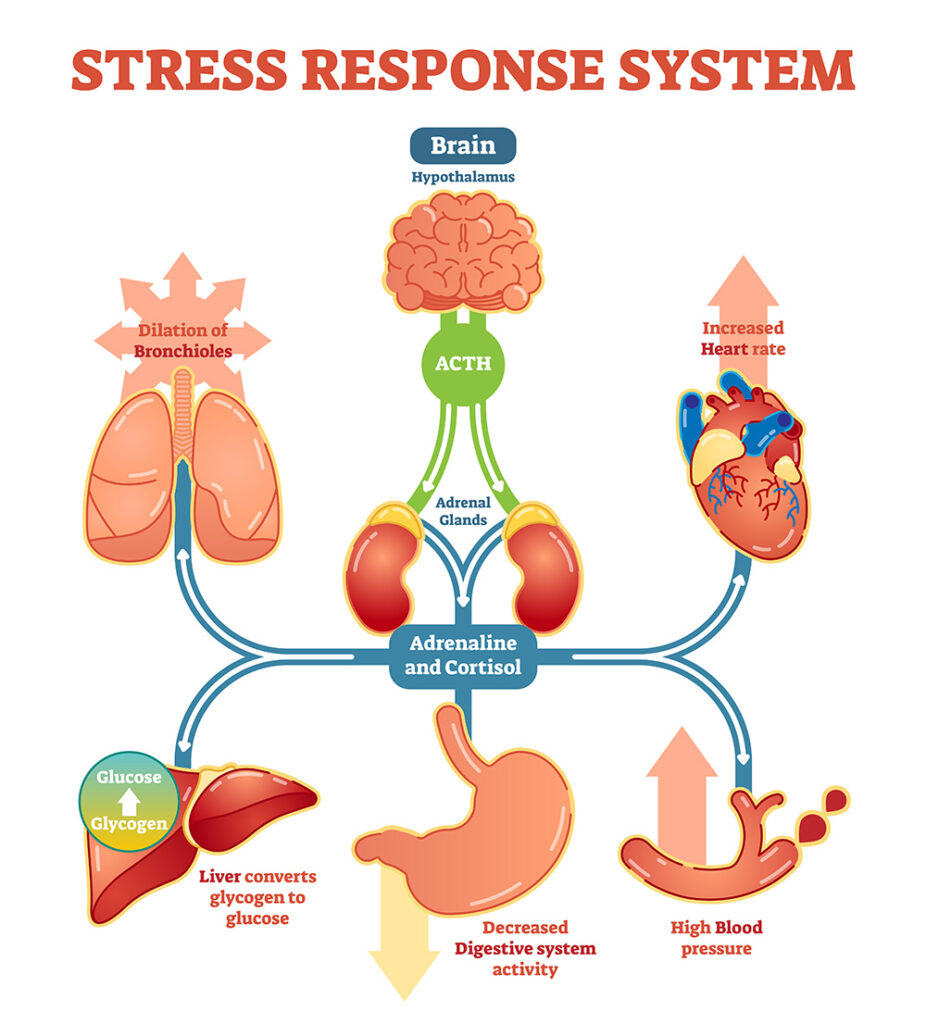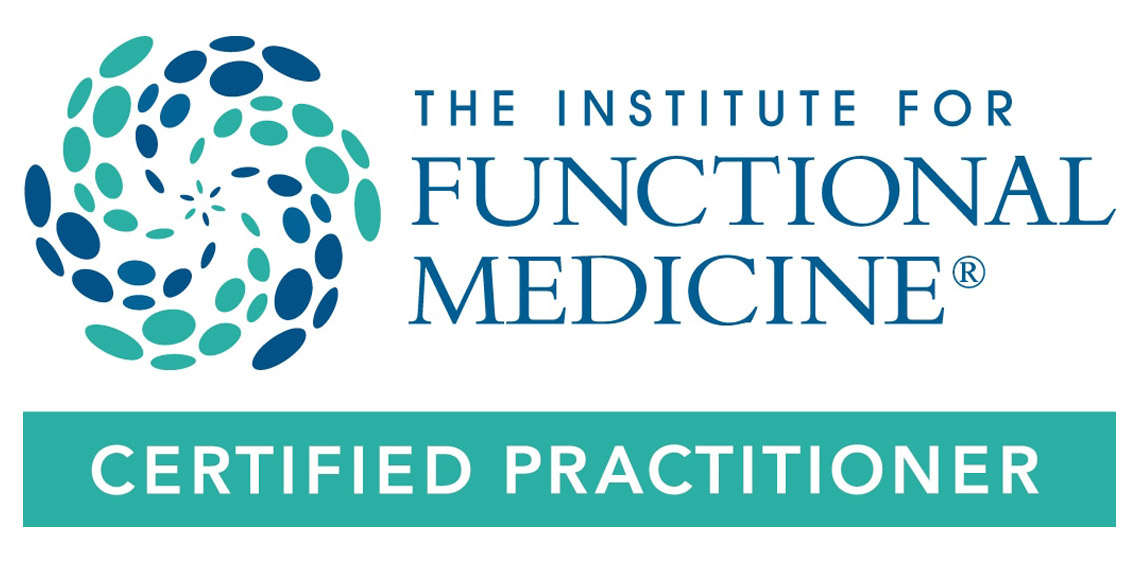
Introduction
Feeling the effects of stress recently? It’s not always a bad thing – stress is simply the human response to changes that create taxing demands. We all perceive and react to it differently – one person’s pleasure may be another’s anxiety, but stress falls broadly into two types:
First, there is positive stress (the fun kind), that motivates, focuses energy, is short-term and within our coping abilities, feels exciting, and improves performance – like starting a new career or getting married.
Then there is negative stress (the not fun kind), that causes anxiety, can be short or long term, feels unpleasant and beyond our coping abilities, decreases performance, and can lead to mental and physical problems. Examples of negative stress include loss of a loved one, illness, and financial problems.
We encourage you to go out and find all the positive stress you can! You’ll likely feel way better and live longer. You might even have better relationships and more financial success from the exhilaration and action that comes from the powerful positive motivation of positive stress.
This article is about the negative kind of stress. Most people don’t take it seriously because they don’t understand that unchecked negative stress is a killer that contributes to a host of detrimental mental, emotional, and physical health outcomes. Negative stress damages us!
There are powerful natural ways to transform the effects of stress – but they require us to have the motivation to make changes in our lives. It is with this motivation in mind that we share with you these 10 Scary Effects of Stress.
Effects of Stress
1. Stress Causes Premature Aging
A UC San Francisco research team led by Dr. Elizabeth Blackburn demonstrated that stress shortens telomeres—structures on the end of chromosomes. For you that means new cells can’t grow as quickly and this results in the inescapable signs of aging: wrinkles, weak muscles, poor eyesight, and more. And we all want to stay young – right?
2. Stress Causes Weight Gain
When you’re stressed, the body assumes you’ve used a lot of energy to escape a threat (like being chased by a tiger) and that you need to replenish energy as quickly as possible. So, it’s natural to want to eat as much as possible while you can!
Stress also triggers the endocrine system to release cortisol into the bloodstream. And increased cortisol causes higher insulin levels, so your blood sugar drops and you crave sugary, fatty foods that make you gain weight even faster. To make it really simple:
More stress = more cortisol = higher appetite for junk food = more belly fat!
3. Stress Shrinks the Brain
Stressful situations – like going through a divorce or being laid off, can actually shrink your brain. Yale University researchers led by Assistant Professor of Psychiatry Emily Ansell found that traumatic stress reduces gray matter in regions tied to emotion and physiological functions. The study warned that these changes in gray matter can signal future psychiatric problems.
Face it – we all need all the brain power we can get!
4. Stress Fuels Cancer
A Monash University research team led by cancer biologist Dr. Erica Sloan found that stress causes cancer cells in mice to escape and spread through the body – acting like a fertilizer and helping the cancer take hold and colonize other organs. Dr. Sloan said although it was already known cancer could spread through the lymphatic system, her team discovered stress transformed the network into a super highway that allowed the cancer cells to travel at much faster speeds. Researchers reported “six times more spread of cancer” in stressed subjects compared with a control group.
When beta blockers were given to the mice with cancer, the stress response was completely negated. The stress no longer restructured the lymphatic system that led to the increased cancer spread.
5. Stress Disrupts Fertility
Women with high levels of stress ovulated 20% fewer eggs, according to research at UC San Diego. Of those who were able to produce eggs, women who were most stressed were 20% less likely to achieve fertilization success. That means – If you’re very stressed you may be 36% less likely to get pregnant!
Allen Morgan, Director of the Shore Institute for Reproductive Medicine in New Jersey noted that, “when stress-reduction techniques are employed, something happens in some women that allows them to get pregnant when they couldn’t before.”
6. Stress Impacts Unborn Children
One of the effects of stress during pregnancy can lead to toddlers with more anxiety and fearful behavior patterns, according to researchers at University of Denver who have spent years studying the effect pregnant women’s stress reactions have on the fetus.
By the time the same children were between ages 6 and 9, MRI scans revealed that the children’s amygdala, the section of the brain associated with the human response to frightening stimuli, were larger than normal.
Research team leader Dr. Elysia Davis noted that, “Not only are mothers reporting that the children show anxious behavior, such as being scared of going to school, but we can see differences in the way their brains have developed.”
Don’t your kids deserve the very best start in life?
7. Stress Causes Depression
Pleasure is linked to brain chemistry. When a neurotransmitter called dopamine is released in the brain, it causes pleasure. Brains of people with low levels of stress have lots of dopamine, leading to happy and pleasurable feelings.
Highly-stressed people, on the other hand have low levels of dopamine and feel exactly the opposite. The grass is not so green and life is not something to be savored. Brain chemistry has a powerful effect on our lives and releasing stress can have a huge impact on your happiness factor!
8. Stress Does a Number on Your Heart
Feeling anxious and stressed can lead to a 27 percent higher risk of heart attack, researchers at Columbia University Medical Center found. That’s the same effect smoking five cigarettes a day has on the heart!
“These findings are significant because they are applicable to nearly everyone,” noted study author Dr. Safiya Richardson. “The key takeaway is that how people feel is important for their heart health, so anything they can do to reduce stress may improve their heart health in the future.”
The Columbia study was published in The American Journal of Cardiology.
9. Stress Increases Your Alzheimer’s Risk
Neurologists at Albert Einstein College of Medicine and Montefiore Health System in New York found that older adults who reported experiencing high stress levels were twice as likely to develop the memory problems that tend to precede full-blown Alzheimer’s.
“In response to stress, blood pressure goes up and stress hormones are activated,” explained Dr. Richard Lipton, a neurologist at Einstein and Montefiore and senior author of the study. “These stress hormones… may interfere with brain structures involved in memory, including the hippocampus.”
Lipton also noted that stress also may activate pathways in the brain that involve toxic proteins that play a significant role in the development of Alzheimer’s.
10. Stress Fuels your Stroke Risk
Stressed people have a higher stroke risk than their more mellow peers according to Spanish research published in the Journal of Neurology, Neurosurgery, and Psychiatry.
Aggressive type A personality traits were linked with a two-fold increase in stroke risk.
It’s possible to get rid of chronic stress
Did we get your attention on just how bad the outcomes of negative stress can be? Now it’s time for good news!
While it’s possible to minimize the effects of stress with relaxation techniques like yoga, exercise, and meditation, the fact is that many of us experience chronic levels of stress that have impacted our bodies for months or years – especially as we grow older. Relaxation techniques may only scratch the surface and we may need a treatment program to get us back to the point where gentler techniques are effective.
Many conventional treatments for stress and anxiety involve powerful prescription medications. While there is a time and a place for these modalities in acute situations, they can bring serious or uncomfortable side effects when used as part of an ongoing treatment program.
Acupuncture is a very effective natural therapy for stress.
A program of treatments can reset the body’s nervous system and allow us move ahead on a new and more positive path.
During periods of stress the body secretes an assortment of hormones (including adrenaline and cortisol) into the bloodstream from the hypothalamus, the pituitary gland and the adrenal glands. Researchers at Georgetown University found that acupuncture blocks the chronic, stress-induced elevations of these hormones.
The study was led by Dr. Ladan Eshkevari, assistant director of the Nurse Anesthesia Program at the School of Nursing & Health Studies and published in the Journal of Endocrinology.
“Many practitioners of acupuncture have observed that this ancient practice can reduce stress in their patients, but there is a lack of biological proof of how or why this happens,” commented Eshkevari. “We’re starting to understand what’s going on at the molecular level that helps explain acupuncture’s benefit.”
For you, a program of acupuncture treatments to reduce stress can mean some very important things… like feeling relaxed and in control, enjoying a healthy strong body and brain, a longer and more active life, quality time with family and friends, and success in your career! And unlike prescription and over-the-counter meds there are no side effects because acupuncture is training your body to deal with stress naturally.

Dr Josse Ford
Josse Ford is the Founder and Director of the Alchemy Radiant Health clinic in Encinitas, California. She specializes in the integration of Chinese medicine and functional medicine to treat the whole human holistically and to focus on the root cause of illness




